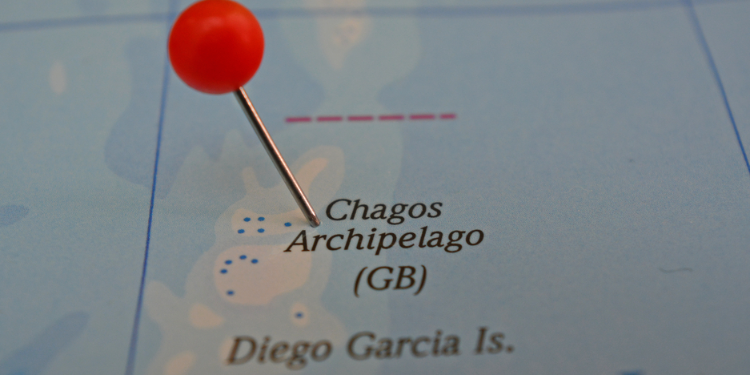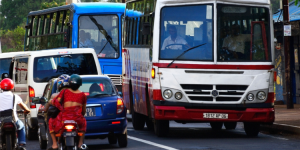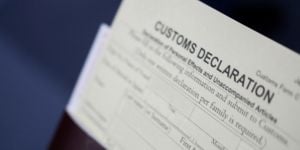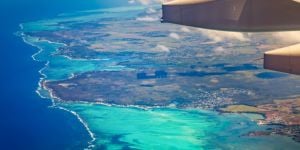
On June 23, 2023, a somber milestone was reached as it marked the 50th anniversary of the forced removal of the Chagossians, a community of island people living in the Chagos Archipelago situated in the Indian Ocean.
Even after five decades since their displacement, the Chagos archipelago remains a focal point of negotiations between Mauritius and the United Kingdom. A commemoration ceremony, organized by the Chagos Welfare Fund in Baie-du-Tombeau, saw Mauritian Prime Minister Pravind Jugnauth firmly asserting that there can be no compromise when it comes to the Chagossians' right to return to their homeland. The event served as a gathering for both deportees and political figures, illustrating the unwavering determination and hope of the Chagossians to reclaim their ancestral lands.
During the ceremony, several deportees shared their poignant testimonies, shedding light on the immense hardships they endured during their forced removal.
The forced deportation of the Chagossians, orchestrated by the British government in the 1970s, had catastrophic consequences for the community and drew strong international criticism. It is crucial, even after 50 years, to remember this tragic event and recognize the ongoing endeavors of the Chagossians to achieve justice and regain their rightful place in their homeland.
What happened in the Chagos Islands?
To provide historical context, the Chagos archipelago, including the significant island of Diego Garcia, was successively colonized by the French and British in the 18th and 19th centuries. Initially uninhabited, the archipelago gradually became home to settlers and their enslaved individuals, followed by workers from India and Southeast Asia. The Chagossians are the descendants of these diverse populations, having evolved as a distinct community over generations, developing their unique Creole language, music, and culture. They established their lives on the primary Chagos islands and atolls of Diego Garcia, Peros Banhos, and Salomon, where they have resided for several generations.
After the French colonies, including Mauritius, were ceded to Great Britain in 1814, the Chagos Islands became part of Mauritius. However, prior to Mauritius gaining independence in 1968, the archipelago was detached from Mauritius and placed under direct British administration, resulting in the creation of the British Indian Ocean Territory (BIOT). Consequently, starting from 1967, the Chagossians were forcibly expelled from the Chagos Islands. This deportation was carried out by the British government in collaboration with the colonial authorities of that time, with the purpose of clearing the islands of their population to establish a joint UK-US military base on Diego Garcia.
The human and social consequences of the Chagossians' deportation were deeply severe. Families were forcibly separated, uprooted from their homes, lands, and traditional way of life. Disturbingly, in their efforts to expel the inhabitants, the British and American authorities also targeted their dogs. Accounts reveal that they resorted to shooting them with live ammunition, poisoning them, and even luring them into a shed to be killed and burned, sometimes while still alive.
The Chagossians were subsequently relocated to Mauritius and the Seychelles, where they faced precarious living conditions, discrimination, and marginalization. Most of the Chagossians were illiterate and primarily engaged in agricultural work. Consequently, they found themselves destitute, unemployed, and living in abject poverty. Additionally, the loss of their traditional livelihoods had a profound impact on their cultural identity and psychological well-being.
The ongoing struggle
Since their forced displacement, the Chagossians and their descendants have relentlessly fought for justice and the right to return to their homeland. With the support of human rights organizations and international solidarity movements, they have pursued legal avenues to have their rights recognized. They have brought their case before British, European, and international courts, achieving significant legal victories along the way.
In 2019, a significant development occurred when the International Court of Justice (ICJ) issued an advisory opinion declaring that the United Kingdom should put an end to its administration of the Chagos Islands. However, the British government has thus far resisted these calls, citing national security concerns as their justification. As of today, the Chagossians have acquired British citizenship, marking a significant achievement. Nevertheless, the struggle for justice and the right to return to their ancestral lands is far from over.
Despite favorable legal decisions in support of the Chagossians, the actual situation on the ground has not yet undergone substantial changes. The issue of their right to return to their native lands remains a contentious and unresolved matter. The complexities surrounding national security considerations and the ongoing negotiations between Mauritius and the United Kingdom have contributed to the prolonged nature of this struggle. Thus, the Chagossians continue their fight, seeking a resolution that will allow them to reclaim their homeland and secure a better future for themselves and future generations.



















